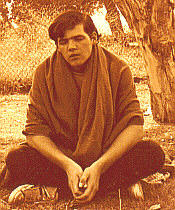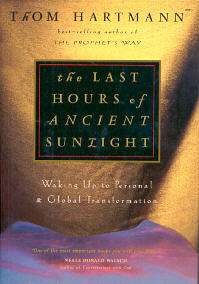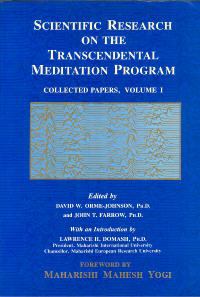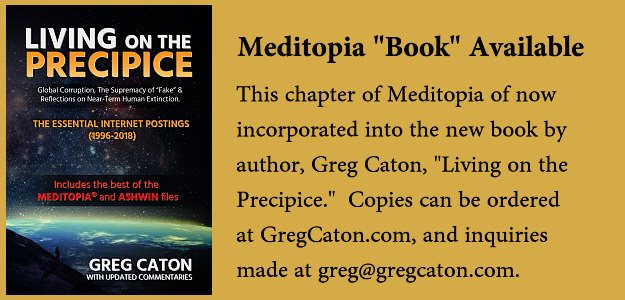
Chapter 5:
Entropy &
Caton's Exosomatic Axis
|
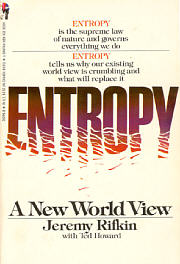
Definitions
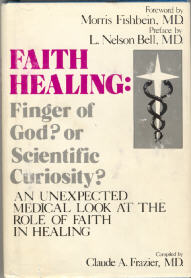
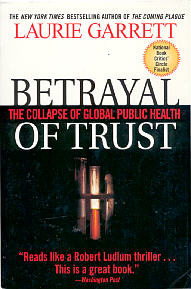
|
|
Caton's Exosomatic Axis
| ||||
|
Axial
Progression |
Pure
Endosomatic |
Endosomatic
dominant / Exosomatic subordinate |
Exosomatic
dominant / Endosomatic subordinate |
Pure
Exosomatic |
|
Definitional Overview & Basic Properties
| ||||
|
Seed
Concept |
Me. My
body, mind & spirit -- and my connections
to the non-physical world. The greatest,
most valuable tools I use are those that
are within myself -- and in my relationship
with the non-physical, be that identified
as God, an unmanifest Supreme Good, etc.
|
The emphasis
is on my person. The "tools" in my environment
are utilized in a sustainable way, because
consciousness at this level respects
the interconnectedness between "me"
and the environment that is "not me."
|
The
emphasis is on the objectified outer
world -- but there is a still a
knowingness of the value of
the subjective. |
Man is defined
by his ability to maximize the utility of his "tools."
The Inner Man, the subjective value of humanity,
is most suppressed at this stage.
|
|
General Orientation
|
The answer is within us.
Whatever problem that can arise from within,
can be solved from within. A failure to
recognize this eminates from ignorance
and a lower state of consciousness.
|
The answer to
our problems starts from within. The solutions
outside of us must take the "inner" into
consideration. |
The solution
resides outside of us, but it is helpful not to
forget that the inner component is a contributing
factor. |
Man defines his
very intelligence -- indeed, his superiority over apes --
by his ability to use tools. Our solutions clearly
reside in objective reality. Science and technology,
regardless of discipline, theoretical or applied,
dictate that we find solutions by mastering
a Nature, which is clearly external to whatever
we define as "ourselves."
|
|
Consciousness
|
Highest level
of consciousness or "self-actualization."
Highest level of spiritual development.
Spirit -- rarified.
|
Lower
level of consciousness. More density
in physical matter.
|
Still lower level of consciousness. Man's absorption in the physical world is high, and his consciousness of non-physical worlds is lower still. |
The lowest level
of consciousness. This level of consciousness
has given way to our current mechanistic
worldview, as well as our twisted systems
of legal, moral, and ethical relativism.
|
|
Complexity
|
Tend to be simple.
|
More complex.
|
And still more complex. |
Most complex.
|
|
Cooperation
versus Competition |
Cooperative.
At this end of the axis, the fabric of unity
that ties all humanity together is self-evident.
Competition is seen as selfish and unnecessary.
|
Less cooperative
with some competition, but cooperation is
dominant.
|
More competitive with some cooperation, but competition is dominant. |
Most competition.
Even "apparent" cooperation has competitive overtones.
|
|
Specialization
|
Least specialized.
Most generalized. Comfortable operating
in the abstract. Mimics an Indian proverb
about the process of becoming 'enlightened':
"A man who controls a fortress automatically controls
all the paths leading up to the fortress.
Focus on controlling the fortress and not the paths!"
|
More specialized.
Not quite as generalized. Slightly more
concrete. Here there is still the understanding
that great healing draws from the wellspring
of the great generalist. Another Indian
proverb: "Water the root to enjoy the fruit."
|
Still more specilization. Even less generalized. Still more concrete. |
Maximum tendency
towards specialization. Least generalized.
Everything is concrete and there is discomfort
operating in the abstract.
In a highly mechanistic environment, everything
must appear in great detail, every 't' crossed,
every 'i' dotted. A generalist is
a specialist wannabe.
|
|
Thermo-
dynamic Effect |
Low entropy.
Takes the least energy away from its environment,
and puts the most back in.
|
More entropic.
|
And still more entropic. |
Most entropy.
Exosomatic systems of healing steal the most from
their environment and put the least back in.
|
|
Ultimate Source of Healing:
Inner to outer;
subjective to objective; mind to matter.
|
Man is, above all things,
a spiritual being. The ultimate source of all healing
resides INSIDE him. Whatever healing tools are
employed, they are extensions of what is within us.
|
The spirit and
mind of man must be taken into primary consideration.
Healing cannot take place if the mind of the patient
is not properly predisposed -- without observing
this principle, a doctor is only addressing gross
physical symptoms. |
The mind of man is a concern -- after all, do not many illnesses have a psychosomatic component? Nonetheless, the tools of healing largely stand on their own merit, independent of what the patient does or does not think. |
Everything that is
necessary to heal man's ills resides OUTSIDE him.
Science tells us that we can only know reality by
adherring to the truth of objectivity -- for subjectivity
can only fail us.
|
|
Modalities:
Systems
of healing, methods, products, and
protocols as they reside along the
Exosomatic Axis.
|
Faith and 'psychic' healing
practices, power of positive thinking, Reiki,
therapeutic massage, chiropractic and
osteopathic subluxation manipulations,
'psychic surgery'; exercise, hatha yoga,
and related practices.
|
Nutrition and diet;
natural vitamin / mineral supplementation;
herbology (phytopharmacology / ethnobotanical medicine), iatrochemistry
(involving naturally occurring minerals and compounds),
balneology, bio-oxidative therapy, etc.
|
Artificial diet supplementation (or compound not as readily assimilated as from natural sources); minor surgery, pharmacologicals involving compounds that are close to those of natural sources (i.e. phytopharmacology, etc.) |
Those farthest from man's
natural origins: this would include
most of the drugs now on the market in the West;
chemotherapy with chemical compounds not found in nature,
radiation treatment, radical surgery, etc. Those in this
group tend to be immunosuppressive in some way; not
immunosupportive -- a propensity to work one's will ON
nature instead of work WITH nature.
|
|
Between Unmanifest & Manifest
| ||||
|
Relationship
Between Spiritual & Material Describe using
set theory.
|
The spiritual (God)
is the master set. All things in the material world
are a subset of this reality -- for all things
in the material are given birth by the Divine.
'As above -- so below.' All members of the
material set are contained in the spiritual set.
|
The material
world is subordinate to the spiritual. But
the material is its own reality. I try
to work in the 'intersection' set.
|
All things spiritual are a subset of a much larger Universe where the laws of nature are both material in nature and paramount. There is no intersection set. |
The laws of science
are the "master set." Things that appear to be spiritual
can all be explained in strictly scientific terms.
The mechanistic view of the Universe reigns supreme.
Not only is there no intersection set; there is no
spiritual set.
|
|
Role of Spirituality: On the part
of patient or practitioner, what
role belief in the Divine
or Higher Power or Spirituality
contributes to the healing process.
|
Central to the
healing process. Heavy reliance
on the 'innate intelligence of the body' by
practitioner, and usually patient.
|
Still a primary
component of the healing process, followed closely by
the right material means outside the body and
observance of the scientific method.
|
May or may not have some influence. But our true faith must exist in science and the discovery of the helpful, mechanistic forces that exist outside the body. For science, by definition, we know -- and our spiritual beliefs are only conjecture. |
Exists for those
who believe in quack medicine. God is dead.
Religion is the opium of the masses. Only gullible people
believe in such things. Nutrition is unimportant or
over-emphasized by quacks. Science will cure all our ills.
A Higher Power exerts influence over my medical outcome?
Oh please!
|
|
Human In Relationship With the Divine
|
We're spiritual
beings having a human experience. [Deepak Chopra]
|
We're human beings,
where the spiritual should matter more than the material.
|
We're human beings -- material (the seen) by nature. The spiritual (the unseen) is a secondary part of our nature. |
We're material beings.
Spirituality, at its best, is mere unprovable conjecture.
|
|
Role of God
In Healing Process: Our 'relationship''
with that role.
|
"GOD is my
partner in the healing process. There is nothing
I do that does not come from the spiritual.
I carry this
view if I am a practitioner ... or I am a patient."
|
"GOD
is important in my life, and my attention
on the spiritual component of the healing
process works closely with the material."
|
"GOD or the spiritual element plays a part, but science is the most critical component in the process." |
"GOD has
nothing to do with healing. Healing is a science, pure and simple.
I'll go this far and no farther: If the patient 'thinks'
that his or her outlook, or spirituality, or some other
non-scientific mumbo-jumbo is helping them, it's fine with me."
|
|
Good Vs.
Evil |
Pure Goodness.
|
Goodness has
the upper hand over Evil.
|
Evil has the upper hand over Goodness. |
At its extreme, Evil reigns supreme.
After all, can we even say that goodness exists?
Isn't goodness an artificial, subjective value?
[Moral relativism].
|
|
Mind Vs.
Matter |
Mind (spirit)
over Matter. The physical universe follows
causatively from the Word (thought).
|
Mind can
influence Matter.
|
Mind and matter can influence each other. The role of Mind is just one among many. |
The laws of
science are immutable. Matter over mind.
|
|
Light Vs.
Darkness |
"I work from
the Light. I see Darkness as an absence of Light."
|
"I draw
from the Light. But I am adept at working
in the many shades of Grey."
|
"I work in the Dark, because the Earth resides in Darkness, with occasional help from the Light." |
"There is only
Darkness. It is the Light that is an illusion."
|
|
Form Vs.
Substance |
Substance follows Form.
Form is acknowledged as the all-powerful caustive factor.
|
More attention on Form --
and Substance follows.
|
More attention on Substance -- and Form follows. |
Substance is all that matters.
Form is an illusion used to control our objectives.
|
|
The Medical Intermediary
| ||||
|
Physician's
Subjective View of His Role |
"I am at my best
when I am in tune with the Divine Healer within me."
"I am but an Instrument, a Facilitator of Spirit."
. . . "Not my will, but Thine be done."
|
"I draw
inspiration from intuition and other subjective
components of Mind that aren't taught in
medical school."
|
"Adherence to proven medical principles is paramount, though I admit that some 'help from above' doesn't hurt." |
"I am God."
|
|
Physician's
Attitude To Compensation |
"Helping
my patients is paramount. If I devote
all my attention to the wellness of those under
my care, God will take care of my needs.
I am uncompromising in doing what is best
for my patient -- for my aid to my fellow
man is part and parcel of my relationship
with the Divine" . . . "As ye do to the
least of my Brethren, so you do unto Me . . ."
My best work DOES make me wealthy -- but
with a wealth that cannot be measured
merely in bank deposits.
|
"Helping
my patients is what is uppermost on my mind.
The products, services, and protocols I employ must
benefit the patient or I will not use them.
I charge my patient a fair rate for what
I do. I need to be properly compensated for
my talents and abilities, but I put the welfare
of my patients over my desire to make money.
In fact, I would give up my practice before I would
allow a regulatory or other authorative body to
force me to use methods that I suspected were not
beneficial to my patients."
|
"Getting paid comes first. I do whatever I can to help my patient, but regardless of the outcome, practicing medicine is a business -- and those who foolishly forget this will not have a successful practice. Nevertheless (and secondarily), I will not use a product or protocol if I have any reason to believe it will harm the patient." |
"Medicine
is a business. You are in it to make money.
The diagnostic techniques we use, drugs we prescribe,
services we render, must earn a profit.
If I make a referral, I expect a fee. There are recommendations
I make that I know will not help some of my patients, but as
long as 'it's legal' and I've covered myself to the letter
of the Law, I'm fine with it. I use techniques on my patients
that I wouldn't think of using on members of my own family.
I would never take the risk of saving a patient's life if
it meant that I would lose money ... or risk my license."
|
|
Medicine & The Role of
Profitability |
Marginally
profitable compared to exosomatic approaches --
simply because money is not where the focus is . . .
"I put the mission before the commission . . . "
Again, the wealth that a practitioner obtains through
adhering to endosomatic practices cannot be measured
in money alone.
|
Always self-supporting --
because money still makes the world go round.
But the best rewards, for both practitioner and patient,
are still well outside the domain of money.
|
Probably quite profitable, because earning a profit is a primary concern. But the welfare of the patient is still important. |
Very profitable.
After all -- you don't support a medical product
unless it has the potential to make money.
Good medicine and good business go hand in hand.
And good business, by definition, means you're
earning good money. The relationship is linear:
you make MORE MONEY because good business becomes
better business. And better business means
better medicine -- a kind of monetary biofeedback.
|
|
Law, Politics & Other Artificial Constructs
| ||||
|
The Source
Of Authority Centralized
vs. Localized |
The ultimate
source of authority is the individual, the
endosomatic wellspring. So authority is
localized -- what is closest and most
empowering to the individual.
All endosomatic, low entropy
cultures share a decentralized political
system.
|
Movement towards
more centralization. As we move along the exosomatic
axis, the specialization of tools brings the opportunity
to create 'power cells,' and these can only be
consolidated through progressive centralization.
Localized, dominant; centralized, subordinate.
|
Some authority is localized, but the emphasis is on centralization. Centralized, dominant; localized, subordinate. |
Centralization rules --
in political structure, standards, laws, etc. Localized
authority exists but it dwarfs the power and dominance
of centralized authoritative entities.
|
|
The Role
Of Law In Healing |
Natural Law
is the foundation of healing in its purest
form. We can only degrade healing when
we depart from Natural Law.
|
Doing what's
right takes precedent over the 'letter of the law.'
|
The 'letter of the law,' unfortunately, is still the law. You have to follow the Law even if you know it isn't right. Life is about compromises. |
Medicine is business.
Business needs protection. Law provides protection.
What is "right" is not the issue, because rightness is
subjective.
|
|
Patents &
Proprietary Claims |
Endosomatic
methods of healing, by their nature, are not
patentable. No one, but God, can claim ownership.
When healers do their best work they are still
just borrowing something they know belongs
to no mere man. True healers know that real
medical knowledge rests in a realm that is beyond
money, patents, proprietary claims, monopolies,
and, indeed, all manner of commerce. Such
things belong to artificial, economic and
political constructs that WE create. They
are foreign to Nature and to Natural Law.
|
Various
medical practitioners or groups may have their
'formulary secrets,' or elements of their work
not in the 'public domain,' fleeting and temporary
though these claims may be. Nonetheless,
every conscientious
practitioner knows that the source of their
best work resides in a field of life and thought
that is beyond the gross material plane. It
resides in the "collective unconscious" for all
to see, if they merely develop their Inner Vision.
|
Good medicine is rooted in progress and you promote progress by providing incentives to protect proprietary invention. That goes for every area of technology, not just medicine. That the source of such inventiveness may come from areas of life that reside outside commerce and the more practical areas of human endeavor doesn't marginalize the need to enforce effective, proprietary systems that make progress possible. |
Again, medicine is
business. You cannot have good business without
respect for intellectual property rights. Great medical
inventions come from people -- not God, angels, fairies,
or other unseen forces. Strictly enforced
patent law makes medical progress possible.
If a medical product or procedure isn't patentable,
it is, no doubt, inferior. Medical progress -- the
forward march of scientific achievement through time --
moves us forward, not backward. And the incentive
to make money by providing proprietary protection
cannot be divorced from good medicine.
|
|
Imputations
To Time |
Natural Law
exists outside linear time, as we know it.
An old Indian proverb reads: "There is nothing
new under the sun" -- capturing the limitations
of a linear view of time, discovery, and evolution
that a less expansive view can only truncate.
A highly evolved healer knows that by tapping
into the collective unconscious, the akashic
records, call it what you will, he operates
outside of time. He draws from the same
inspirational sources that healers did 3,000
years ago, assuming they had the same level
of awareness. Discovery, advancement, evolution,
or well-being cannot be measured in time;
they are rooted in pure consciousness which
knows no time
|
Although
medical advances have appeared to accrue
over time, we still adhere to those practices
that work. Our allegiance is to what
helps the patient. Just because something
is old, doesn't mean it isn't effective;
just because it's proprietary doesn't make
it better. Just because it make more
money, doesn't mean we should employ it.
Conversely, just because a medical technique is
new, doesn't mean it is superior to
a tried and true method that is over
1,000 years old.
|
Emphasis should be placed on using the newest and best. Medical progress IS linear. We get better at what we do all the time. We are better healers today than our brethren one hundred years ago. They were better than those one hundred years before them, and so on. History clearly reflects that the advancement of medicine has occurred over time. Nonetheless, a real healer is still an empiricist: he doesn't ignore older healing techniques if a newer one appears to benefit the patient. |
Since medicine
is business and good business demands progress,
it only stands to reason that all regulatory
and legal forces should be deployed at protecting
the latest medical developments. These developments
occur over time. Time is the ubiquitous foundation
for how we measure our work, evaluate our advances,
and determine quantatively our profitability.
All good things come from a strict adherence
to linear time. The absence of this adherence
brings chaos.
|
|
